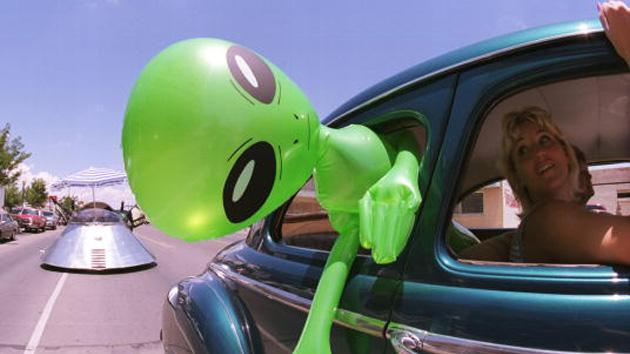publicdomain
Latest

NSA will release a free tool for reverse engineering malware
The NSA has frequently been accused of holding on to info that could potentially improve security, but this time it's being a little less secretive. The agency is planning to release a free reverse engineering tool, GHIDRA, in tandem with the RSA Conference on March 5th. The software dissects binaries for Android, iOS, macOS and Windows, turning them into assembly code that can help analyze malware or pinpoint questionable activity in otherwise innocent-looking software.

Use 375,000 images from the Met however you want, for free
If you want to use images of paintings from the Metropolitan Museum of Art, like Woman with a Parrot by Gustave Courbet (above), you no longer have to worry about rights. All of the Met's approximately 375,000 public-domain artwork images are now available for free, unrestricted use. The new "Open Access" policy, based on Creative Commons Zero (CC0), means bloggers, schools and businesses alike can use them without even the need for attribution.

Georgia sues man for posting annotated state laws online
You might think that legislation should be freely accessible as a matter of course, but the state of Georgia begs to differ. It's suing Public.Resource.Org owner Carl Malamud for allegedly violating copyright by publishing the annotated versions of Georgia's laws (that is, the ones that truly reflect the legislative process) online. While it's fine to publish the basic, note-free laws, the state argues that you should pay Lexis Nexis up to $378 to read the context-laden versions. The state claims that it would have to dip into tax dollars if it wanted to make this information free, and citizens would supposedly be deprived of "valuable analysis and guidance" if it wasn't published at all.

Flickr gives you the choice to put photos in the public domain
Flickr has long had ways to let others use and tweak your photos, but if you want to give up your copyright altogether? You can now do just that. In the wake of Elon Musk releasing SpaceX's photos to public domain, Flickr has added options for public domain and Creative Commons 0 ("no rights reserved") licenses. Choose them and others can do whatever they want with your images, free of charge or even credit. If you see your photography as more of a service for the greater good than a closely guarded treasure, you can loosen the restrictions today. [Image credit: SpaceX, Flickr]

Ancestry website won't let you borrow its UFO records
You wouldn't think that genealogy websites would have much need to defend copyrights, but they're apparently quite zealous -- so long as you're interested in alien spaceships, at least. Ancestry.com has forced enthusiast site The Black Vault to take down legions of declassified US records on UFO research because some of them were taken from its Fold3 subsidiary. While the documents are public domain, their digital copies supposedly aren't -- Black Vault has to either get permission or digitize the records itself in order to post this content online, a spokeswoman says.

The Smithsonian now lets you see 40,000 pieces of art online
The Smithsonian vowed that it would open up its digital collection by early 2015, and it's clearly not wasting time as it delivers on that promise. Both the institution's Freer and Sackler galleries have posted over 40,000 pieces of global art online, all of which can be used for non-commercial purposes for free. If you want an Egyptian relic for a class project or a fine Japanese painting for your phone wallpaper, you're welcome to it. It's relatively easy to sort the offerings, too, so you can look just for art from a given period or browse everything from a particular culture. The size of the digital collection is a bit daunting, but that's a worthwhile tradeoff if it means that you can see classics that would otherwise stay locked up in a museum warehouse. [Image credit: Ito Sozan, Freer Gallery of Art and Arthur M. Sackler Gallery]

Computers are ranking the world's important authors
Trying to rate the world's literary giants is tricky at best. Do you go by the number of books sold? The long-term cultural impact? If you're Dartmouth College researcher Allen Riddell, you make computers decide. As part of an effort to determine which books would be most valuable in the public domain, Riddell has developed an author ranking algorithm that determines the most important authors who died in a given year. The system ranks writers based on the age, length and popularity of their Wikipedia articles, along with the number of titles they have in the public domain. If an author gets a lot of attention but doesn't have many freely available works, that person climbs the charts and is more likely to have titles published on free literature sites like Project Gutenberg.

New York Public Library now lets you use 20,000 historical maps for free
Ever wanted to see what New York City's maps looked like before skyscrapers took over... or before Americans took over, for that matter? It's now easy as pie. The New York Public Library has published more than 20,000 of its historical maps under a Creative Commons public domain license. You can freely download, manipulate and publish cartography created between 1660 and 1922, a large chunk of which explores New York City's neighborhoods in detail. You'll also see thousands of maps covering the mid-Atlantic US and the Austro-Hungarian empire (yes, really). We can't imagine too many people wanting to remix Gangs of New York-era property charts, but it's hard to object to getting more geographic knowledge at no charge.

YouTube wants more videos to have background music, adds audio editor
Need something to fill in the awkward silence between your vlog's unscripted stuttering? YouTube's got your back. In yet another attempt to make your crummy videos just a little better, the streaming outfit has revamped its audio editing suite, giving users access to over 150,000 tracks and a simple sound mixer, to boot. Sure, YouTube's tracks may not be as catchy as your favorite Flaming Lips single, but at least you won't have to worry about copyright infringement. Check out YouTube's quick demo of the feature after the break.

Supreme Court rules public domain isn't permanent, says Congress can re-copyright some international works (update)
If you've been enjoying the fireworks over PIPA and SOPA these past weeks, get ready for more intellectual property ugliness. The US Supreme Court handed down a decision in Golan v. Holder Wednesday granting Congress the power to restore copyright claims on works that had entered the public domain. The six to two decision (with only the conservative Samuel Alito and liberal Stephen Breyer dissenting) was issued primarily with an eye towards bringing the country in line with an international treaty known as the Berne Convention. The plaintiffs in the case included orchestra conductors, educators, performers and archivists who rely on public domain works such as Fritz Lang's Metropolis and compositions from Igor Stravinsky. Many orchestras, including that of lead plaintiff Lawrence Golan, will now be forced to stop performing works that are a regular part of their repertoire due to licensing fees. Hit up the more coverage link for the complete (PDF) decision.Update: To be clear, this decision upheld a statute granting copyright protection to a bundle of international works that were placed in the public domain (and therefore denied copyright protection) under previous US laws.

Sony and Library of Congress launch streaming National Jukebox, ready to DJ at your local speakeasy
Who's better, Sammy Hagar or The Great Caruso? We know you have every track the Red Rocker ever laid down, but if you haven't upgraded your gramophones of the great Italian tenor, today is the first day of the rest of your life. The Library of Congress, working with Sony, now streams a collection of 10,000 historical recordings, including Caruso and other pre-1925 greats. This "National Jukebox" is a bit of a hodge-podge, including everything from early jazz to poetry to yodeling, but digging through the archive is half the fun. But while access to this material is great for sound preservationists, commenters on BoingBoing point out that it's not truly public domain work: thanks to our spaghetti-tangle of copyright arcana, Sony still owns the rights. It's allowing users to stream but not download, and technically could revoke its gratis license at any time. So get your Caruso fix while you can.

The Noun Project: public domain pictograms for designers, the illiterate
OK, this might not be much to look at -- a page full of Dingbats, essentially -- but the premise behind the Noun Project is sound and, in this increasingly complex world, important: by creating a visual collection of downloadable public domain symbols representing things like escalators, fast food, and customs checkpoints, the website hopes to promote a visual language "that can be understood by all cultures and people." And since we're sticklers for good, clean design, projects like this are especially dear to us. Hit up the source link to see for yourself.

Movies on your iPhone embedded in an app
I like a good movie as much as the next person, so it was with some interest I took a look at a movie app a reader suggested to us. It is a movie called 'The Invaders' and you purchase the app for U.S. $0.99 [iTunes link] and then play it all you want. For a minute I thought it might be the sixties TV series with Roy Thinnes, but no such luck. In fact, 'The Invaders' is a 1912 public domain silent western about Indians attacking an Army fort. You buy the app, download the 150 MB file to your iPhone or iPod touch, and watch the movie. Then I guess you throw it away, because it is not material that stands up to repeat viewings. The developers have a bunch of other public domain titles in their Cinema Classics series, like 'Night of The Living Dead', but you can download or view most of these titles for free from the web anytime you want. You can also access them from the Internet Archive and watch them on your iPhone or iPod touch with Safari. At last count Night of The Living Dead was available on DVD from 23 firms, and you could view it for free on Google Video or YouTube. It's one of those films that inadvertently slipped into the public domain, leaving the creators with a lot of remorse and no money. The same firm, LOL Software has dozens of iPhone apps, many that just collect news feeds from other sources and put them into an iPhone framework. LOL indeed. Yawn.

Sony brings over a million Google Books to the Reader
Cool move by Sony to bolster the number of titles in its Reader ebook store -- it's linked up with Google to provide over a million free public domain works from Google Books, just like those fun folks at Barnes and Noble. The books are in the EPUB format and will work with the PRS-505 or the PRS-700 in the US only for now -- different countries have different copyright terms, so we'd imagine the lawyers are busy sorting it all out. Sure, none of this will do much to shake the Kindle's market- and mindshare, but at least Sony won't be deleting this stuff off your device without your permission, right?[Thanks, Tom]




